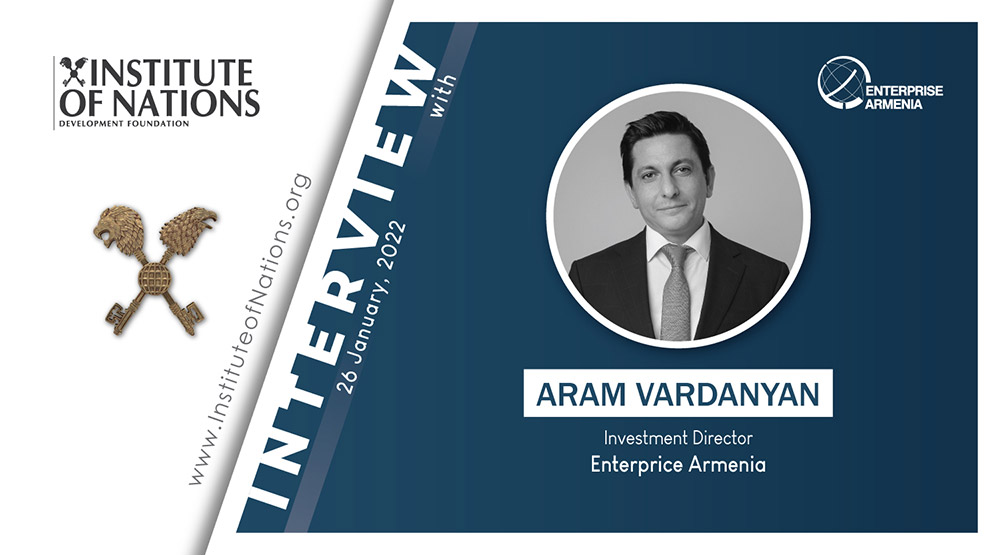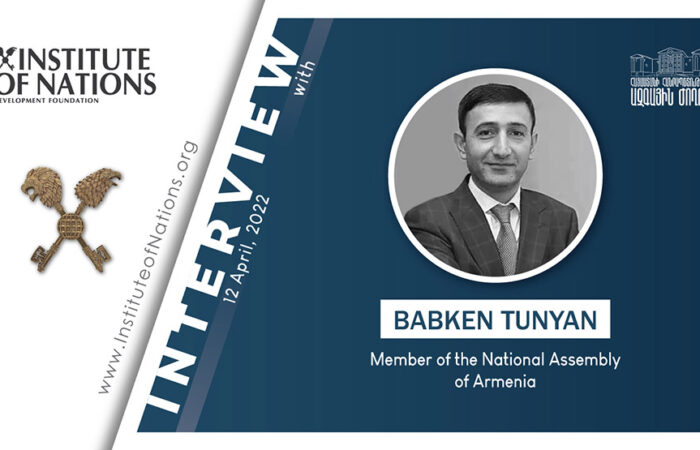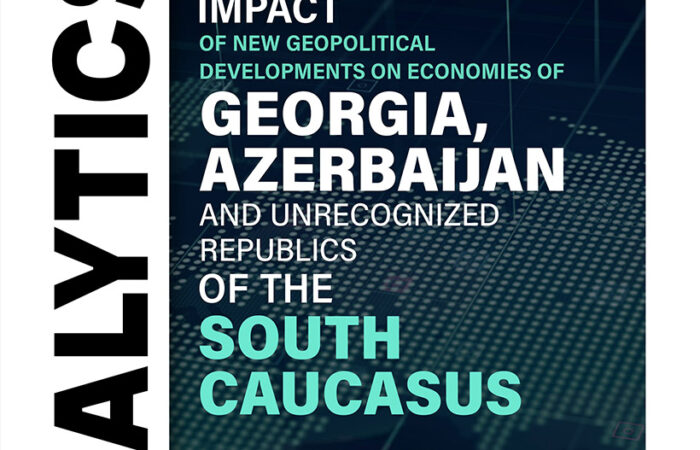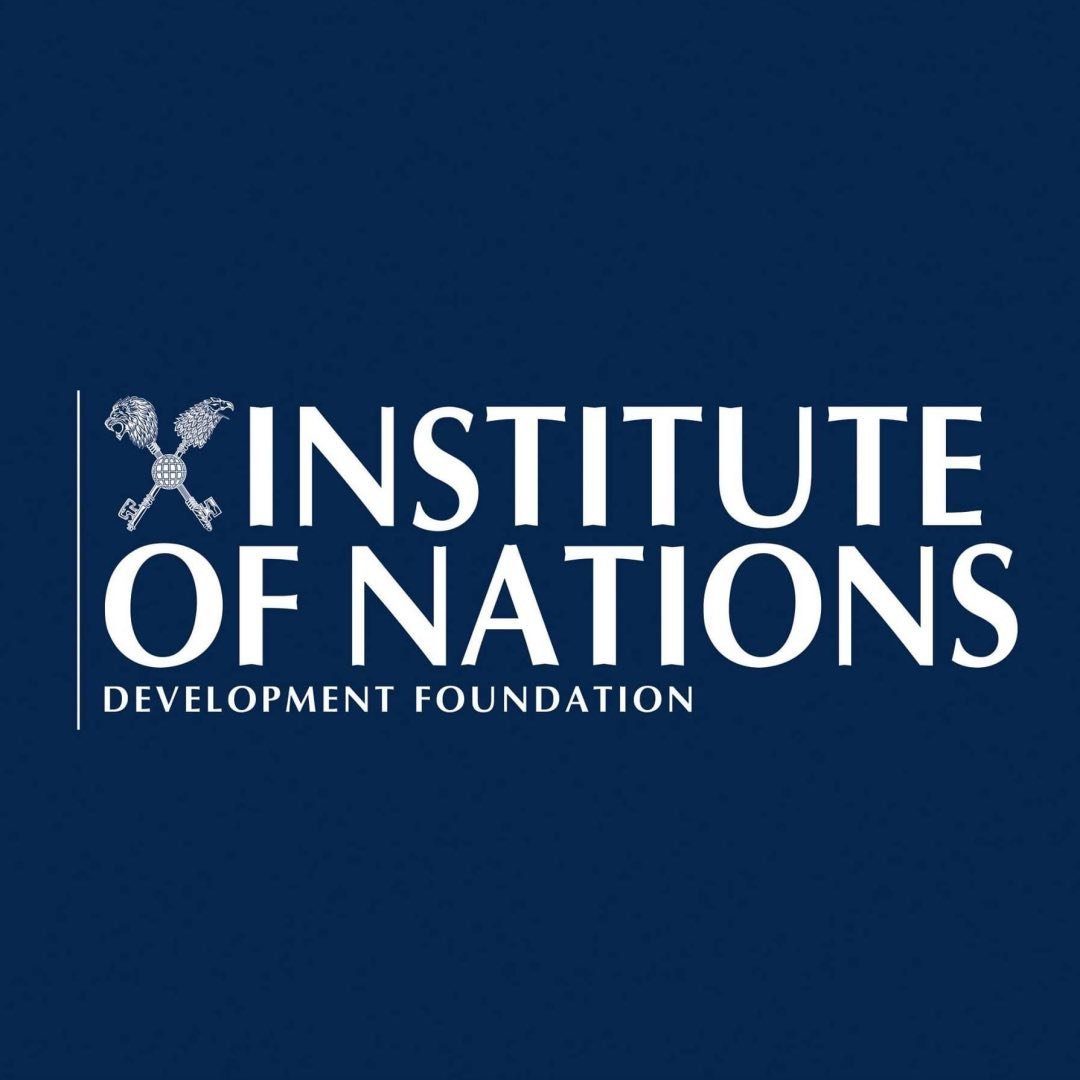The investment portfolio we’re running now gives us the reason to believe, that surely even bigger investments should be made in Armenia, than in 2020, or even in 2019 it used to be.
Interview with Aram Vardanyan, Enterprise Armenia’s Investment Director
Mr. Vardanyan, has Armenia’s investment attractiveness as a country increased or decreased after the war? Did new problems emerge in this regard after the war or not?
The security factor is one of the primary guarantees for any foreign investor. In this regard it’s clear that suspension of military operations cannot but have positive impact. Although, I should mention that in the process of our work, even during the war, investment projects didn’t stop. All the investment initiatives, functioning prior to the military operations, weren’t suspended in that period, all of them continued. Mostly those, which were initiated by our Armenian businessmen. The Investor Support Center doesn’t work exclusively with foreign investors, but also supports local investors to invest. Mostly comprehending that hard situation, due to them, even under the military operations, our Armenian investors realized that strong economy is a ground for a strong country, that’s why they didn’t stop their investment initiatives. Of course, in case of foreign investments they stopped within that information up to the phase, when military operations were stopped. After that, as a result of our continuous work those projects continued. We can’t mention any serious initiative, which has entered any serious stage and was stopped by war results and decision was made to suspend. All the initiatives are underway.
Are any legislative initiatives being developed after the war and do you cooperate with the ruling party in this regard to find solutions to facilitate the entry of investors to Armenia?
Yet from March 2021 we assisted in implementation of a function called post-investment service. Its nature and logic that time was as follows: to identify foreign investors in Armenia, which already function our country, to find out which problems they faced, including those conditioned by the pandemic, pursuing the purpose of making sure that there is no critical situation resulting which they may decide to leave Armenia. And from March 2021 outlining around 100 foreign investors or companies representing world brands in Armenia, which is also in our target group—i.e. the capital may be local, but they represent a large foreign brand—existence of those brands also edifies of country’s investment climate, we proactively paid individual visits to those companies. We didn’t wait for them to contact us, but we visited those companies ourselves. The goal was to get answers to three fundamental questions—what are the current problems conditioned by the pandemic, generally which legal issues, obstacles do they observe, providing solution, legal regulation of which will rise their efficiency to a better business management, and third, are there any new investment initiatives, which out of some reasons don’t proceed? Basically by the end of the year we finalized all the visits, having the entire spectrum of both pandemic and post-war issues, as well as approaches of those companies referring to economic regulations in general. We’ve inventoryied and categorized those problems.
Are there any common issues mentioned by all the companies? If yes, would you name some of them?
As they are companies with foreign capital, our migration policy was of paramount importance for them. Here some issues have been pointed out—difficulties, complicated procedures in terms of bringing relevant employees from abroad to work in Armenia. It is especially true for the field of high technologies. As our regulations, in fact, require specialists from abroad to have e.g. higher education. And the field of information technologies (IT), or for instance cooking, where these people do not always have profile higher education abroad, in fact, we may have an internationally qualified cook, but who may not have higher education, thus inviting them here and working in respective places can be a problem. Surely, many questions have been raised in the field of IT, as the pool of our talents is running out, and today the demand for highly-profiled specialists is multiple times higher than the supply. Here the companies try to have their contribution by proposing the government approaches how educational system can be reformed to meet present-day demand. To our surprise, at first sight it may seem that many questions will arise in connection with tax rates in tax and customs systems, but I should mention that during our visits these 100 companies almost didn’t touch upon those issues.
Didn’t they reflect to easing of the tax burden?
Well, it’s a big wish of any businessman, it’s normal, but pointing out the system’s shortcomings or intolerable conditions which make their activity in Armenia impossible, we almost didn’t register similar issues.
It used to be said, that Armenia’s market isn’t attractive for investors, as there are shadow deals, corruption. What’s the situation like now, if there is a positive shift to that end, how it increases Armenia’s investment attractiveness?
Certainly, especially in case of foreign investors, the fact that we state, that there is no systemic corruption in our country, and by visiting Armenia, and being accompanied by us to different offices, after relevant talks, they convince themselves that there are similar processes, and we, as a structure facilitating the life, explain, show and accompany them and they evidently see that, thus, the speed of their decision-making certainly reduces. With all the investors we interact with, as a quasi-state structure, we are freer in our contacts, and always say the investors we are on their side. There is an atmosphere of big trust between us and we try to understand whether prior to contacting us they came across with similar problems or not. We function from early 2020 and we didn’t come across with similar manifestations either, where it was stressed that there were corruption issues in any body.
You visited 100 investment companies, do you anticipate investment “boom” in Armenia or not?
I’d prefer not to qualify investment trends, whether they’re a “boom” or have a different form. In terms of expectations the general global trend is such, that recently the relevant UN organization issued figures, which showed that if in 2019 foreign direct investments (FDI) worldwide amounted to USD 1,5 trillion, then during 2020 they dropped to 990 billion, and already in 2021 it has grown by 77%, by reaching up to 1,7 trillion. This means that pre-Covid-19 period was exceeded. Although those investments were mostly addressed to developed countries, but investments to developing countries were recorded as well. This is also proved by our statistics, based on which we have recorded rather high rate and growth for FDIs. In addition, the investment portfolio we are running now, gives us ground to believe that surely even much more investments should be made in Armenia than in 2020, and even in 2019.
Siranuysh Papyan





